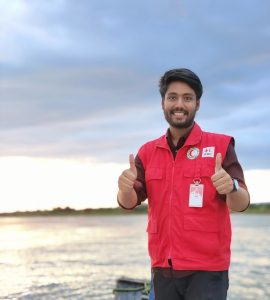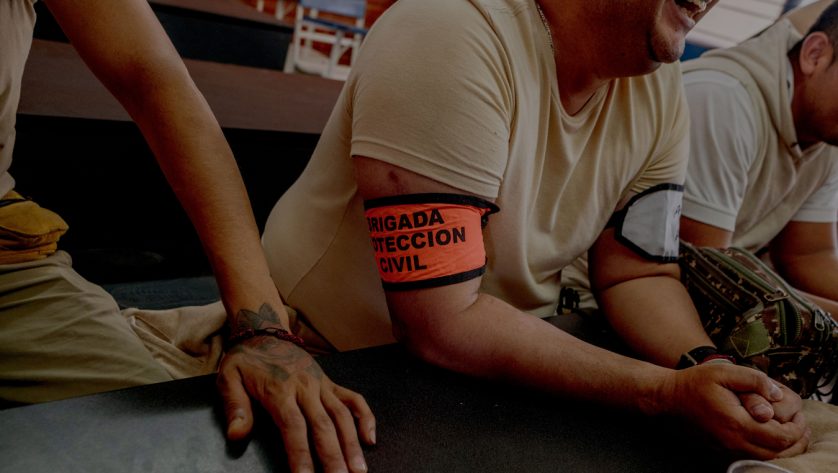Fear and distrust of Covid-19 vaccines
Despite the efforts of BDRCS volunteers through information campaigns, many people from the Bede still feared getting vaccinated. “Many feared they would die, and some feared contracting and suffering from the disease,” said Deepali, a member of the Bede community.
In order to protect them from contracting the virus, BDRCS volunteers recognized that Deepali and her husband Sardar were trusted members within the community. Volunteers worked together with them and other members of these groups to build trust and raise awareness about the importance of getting vaccinated.
“I went house-to-house telling everyone to get the vaccine”, said Deepali, describing how difficult it was to convince people that vaccines were safe and effective at preventing the coronavirus. “When everyone was denying getting vaccinated, my husband and I took the vaccine first. I told them we are also scared for our lives, and therefore we would get it first.”
This action led many others to go to a vaccination centre and line up to take the vaccine. “We are 60 people here, and now 40 of us are already vaccinated,” she said with a smile on her face. “Many of us are now protected from illness. After receiving the vaccine, our children and elderly should also be safe and at peace.”
 Red Cross Red Crescent magazine
Red Cross Red Crescent magazine 







 Tech & Innovation
Tech & Innovation Climate Change
Climate Change Volunteers
Volunteers Migration
Migration